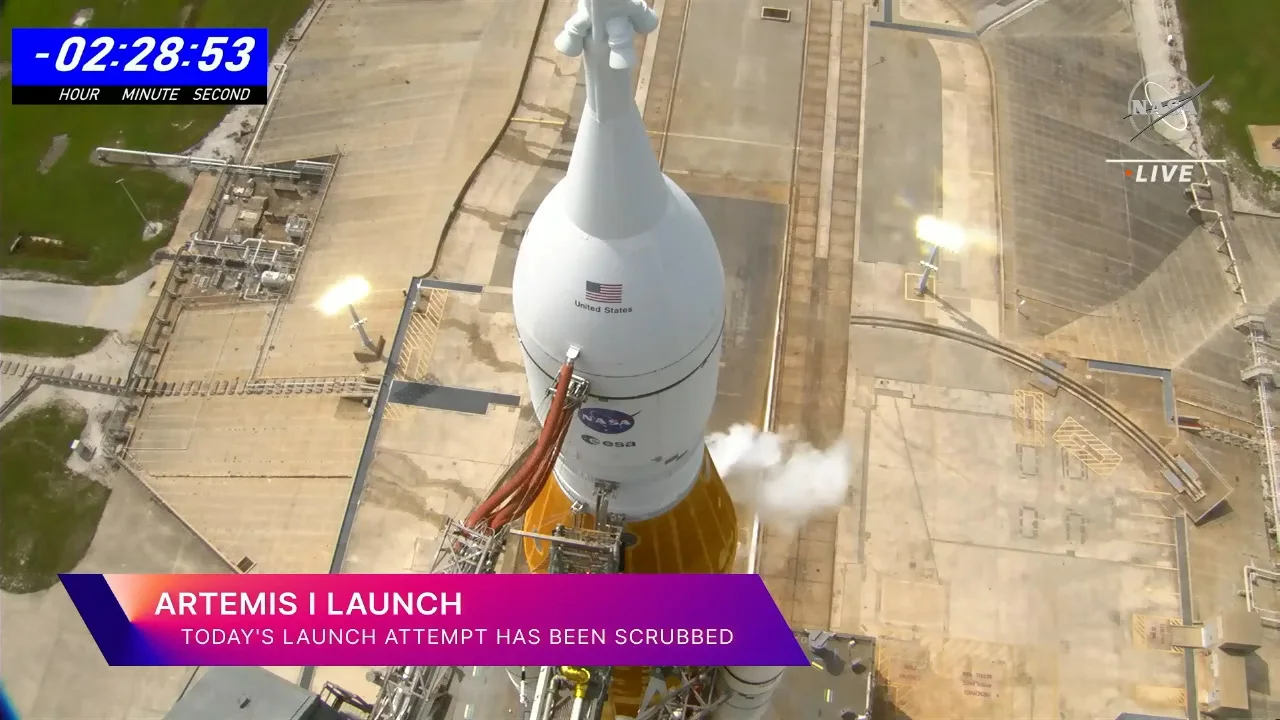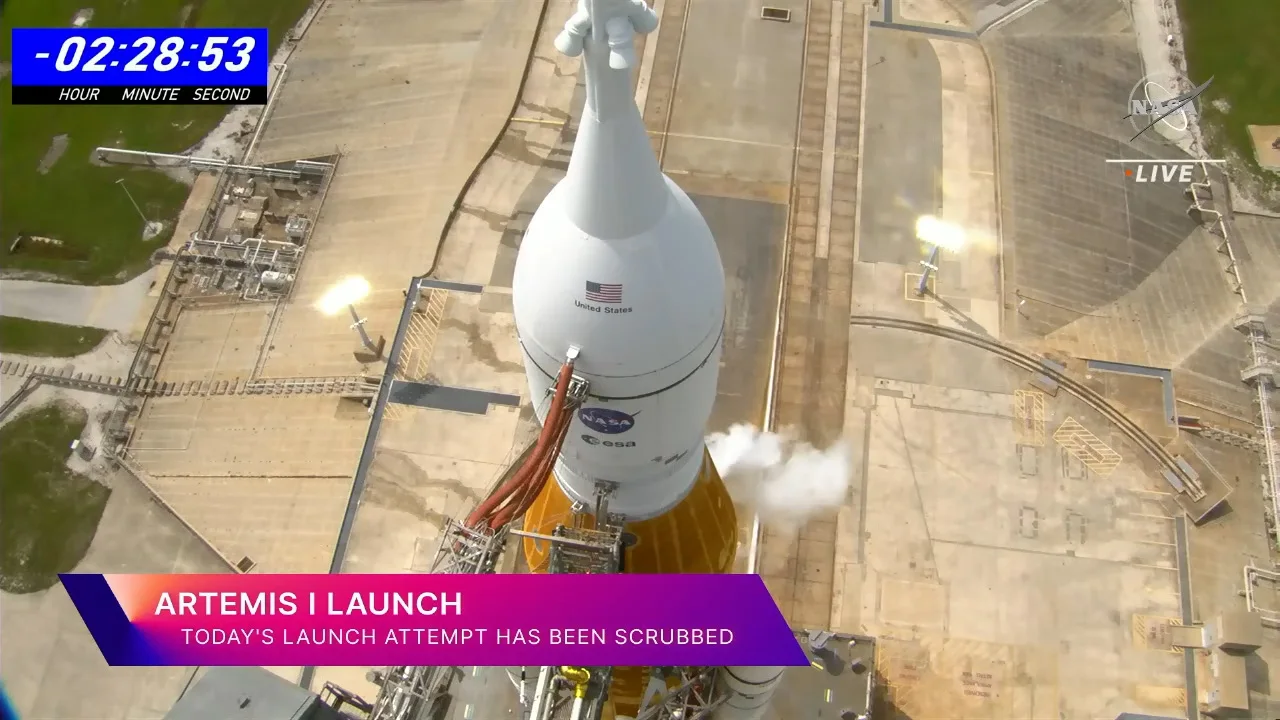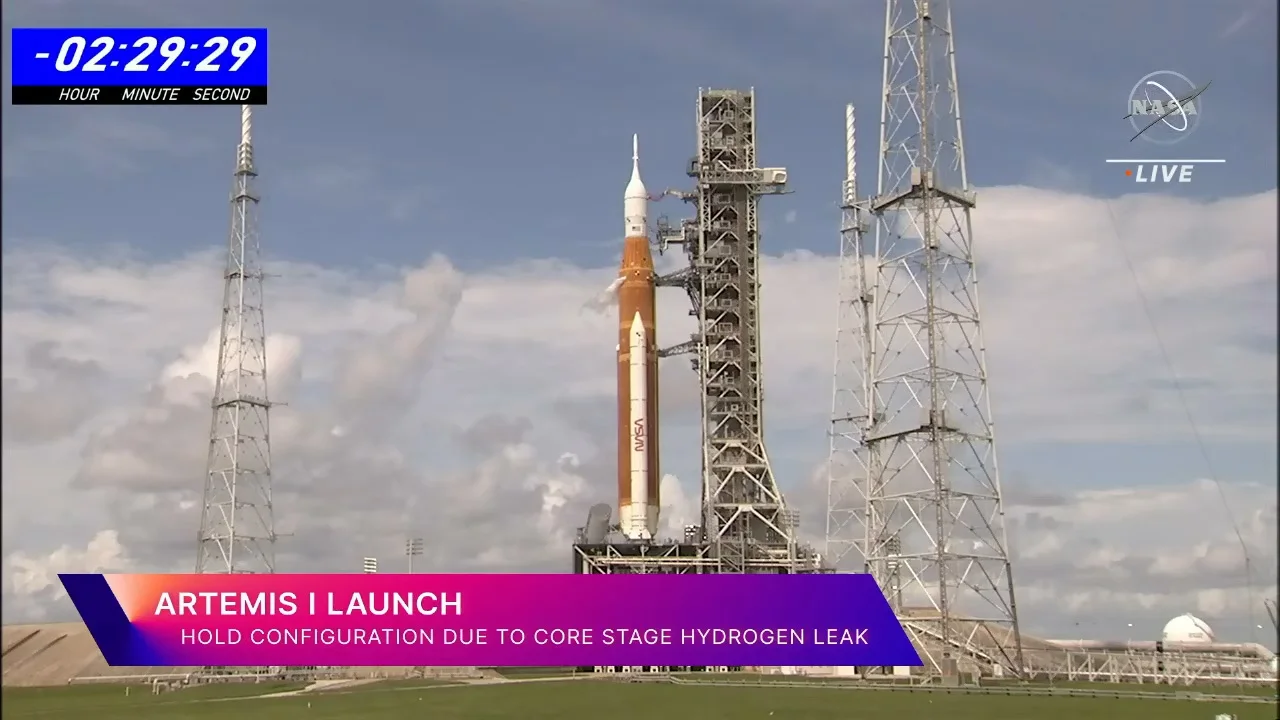
NASA scrubs 2nd attempt to launch Artemis 1 due to hydrogen fuel leak
The earliest NASA could make another attempt is weeks away.
Today's 2nd attempt to launch Artemis 1 has been scrubbed.
Editor's note: Originally published on Tuesday, August 30, this article has been updated with the latest information from NASA. The story continues below.
NASA's historic return to the Moon suffered another delay as of Saturday afternoon. Artemis 1 was scheduled to lift off on a 42-day round-trip flight to the Moon and back, with liftoff planned for 2:17 p.m. EDT on September 3. This was the second attempt, after the first, on Monday, August 29, at 8:33 a.m. EDT, was scrubbed due to a combination of unsettled weather and technical problems.

The 2nd attempt to launch Artemis 1 was called off on Saturday due to technical problems. Credit: NASA TV
According to NASA, the launch team had spent much of the morning dealing with a persistent liquid hydrogen leak in the fuel system. Three hours prior to lift-off, at 11:17 a.m. EDT, launch director Charlie Blackwell-Thompson made the decision to scrub this attempt after her team's third try to fix the leak apparently failed.
"Multiple troubleshooting efforts to address the area of the leak by reseating a seal in the quick disconnect where liquid hydrogen is fed into the rocket did not fix the issue," the mission team wrote in an update on their website.
Directly following the scrubbed launch, the next window for Artemis 1 to lift off was on Monday, September 5.
However, at a press conference at 4 p.m. EDT on Saturday, mission leaders identified the hydrogen leak as serious enough that all plans to launch are now on hold. It is not known when the next attempt to launch Artemis 1 will be, but the next opportunity could be as early as September 19.

This screencapture from the launch livestream shows the status update reporting the hydrogen leak on SLS. Credit: NASA
During the post attempt briefing, Mike Serafin, NASA's Artemis mission manager, said that during the fueling of the rocket, part of the system experienced an overpressurization of around 3 times the normal amount. At this time, it's not known if this was the cause of the hydrogen leak.
Serafin said that the seals (or "soft goods") of the affected engine part may need to be replaced. As of now, the repairs to SLS are expected to take weeks.











